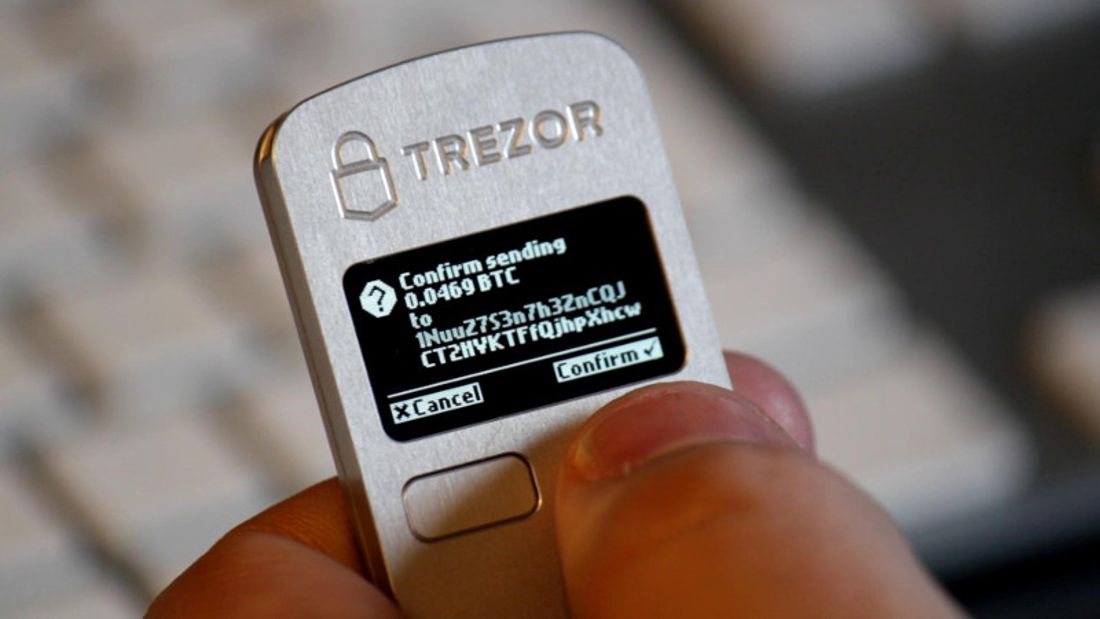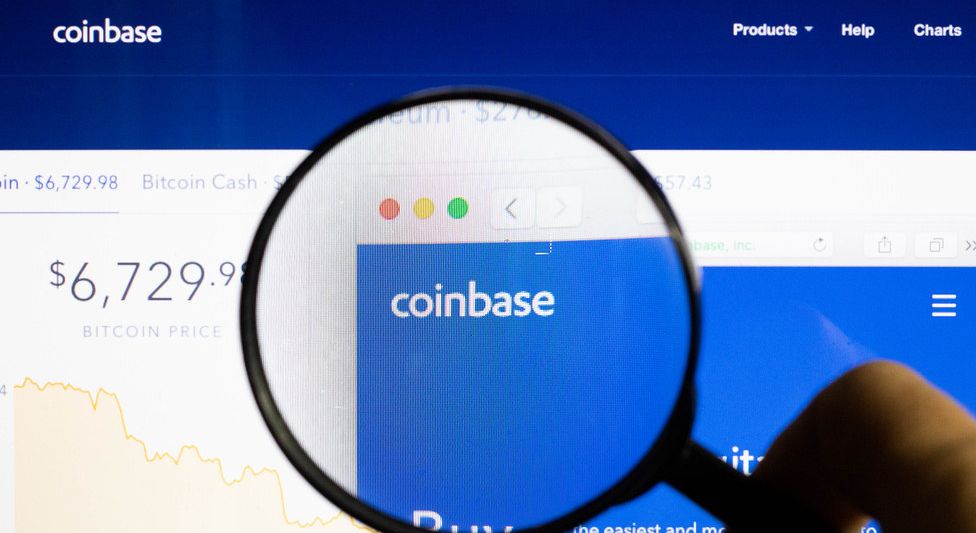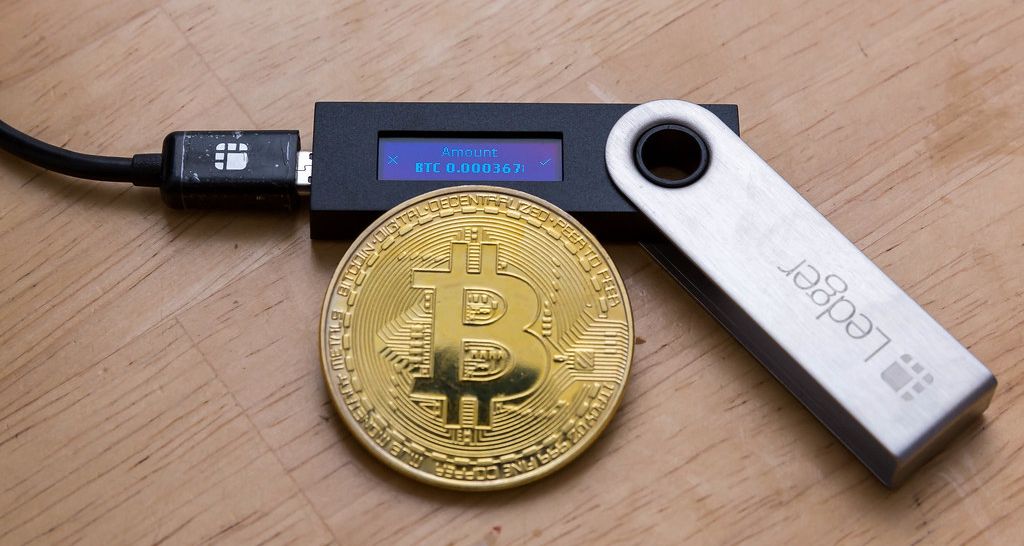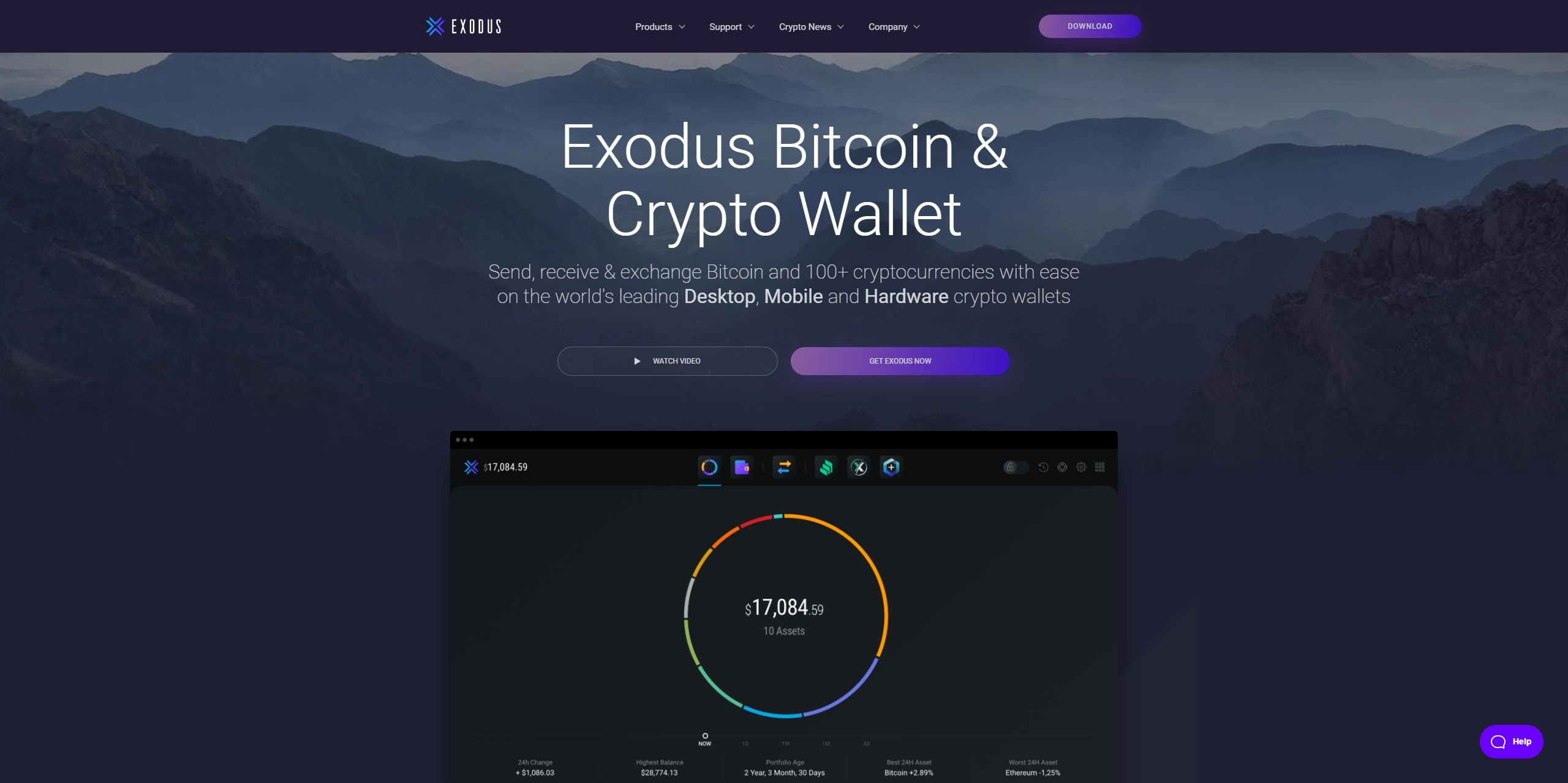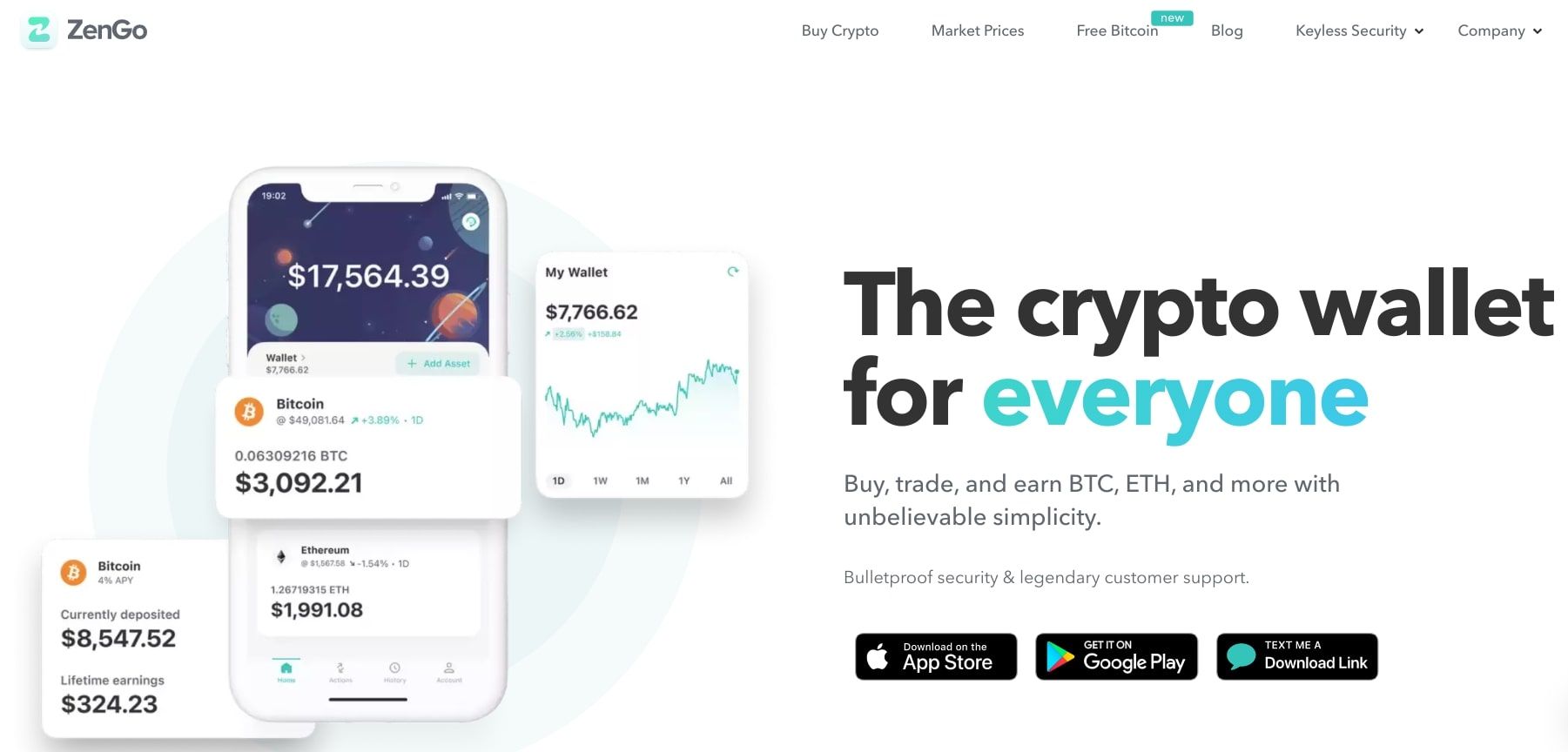In 2022, Ethereum stands as the second-most valuable cryptocurrency behind Bitcoin. Thousands of people buy and sell Ethereum every day, but owning Ethereum requires storing your private keys securely, as crypto theft is a hugely common crime nowadays.
This is where hardware and software crypto wallets come into play. But which wallets stand out, and what do they offer? Let's find out below.
1. Trezor Model T
Trezor is a hardware cryptocurrency wallet. This means that it uses a physical device, rather than software, to store your private keys. Hardware wallets are often more secure than software wallets because of this, as your keys are stored offline, where cybercriminals cannot access them.
There are several Trezor models out there today, the most modern being the Model T. This is currently one of the top hardware wallets out there, with an easy-to-use touchscreen interface, regular firmware updates, and backup options. The Model T also supports thousands of cryptocurrencies, from huge market leaders to smaller, niche coins. And, of course, Trezor wallets support Ethereum.
Another essential feature that hardware wallets need is durability, and the Model T certainly lives up to this. It's made with sturdy materials that won't be subject to breakage no matter how many times you drop it. However, Trezor wallets are not officially waterproof, so keep this in mind if you're interested in getting yourself one.
However, unlike software wallets, reputable hardware wallets aren't cheap. The Trezor Model T comes in at around $250 on the company's official website, so be prepared to make a considerable purchase if you want a hardware wallet.
2. MetaMask
MetaMask is a popular software wallet used by tens of millions of people worldwide. This wallet is made solely for Ethereum, meaning it is tailored to that specific coin.
Like any software wallet that supports Ethereum, MetaMask lets you securely store your private keys for your ETH funds. Additionally, it lets you link a hardware wallet, like Ledger or Trezor, to your MetaMask account for even higher security levels. It's also open-source software, so you can access its code online and build your own tailored version at home. You can also buy coins using MetaMask via Coinbase and ShapeShift.
Something to note about MetaMask is its gas fees. Projects that exist on the Ethereum blockchain are subject to this fee, which users must pay to compensate for the massive amounts of computing power required to conduct transactions.
3. Coinbase Wallet
Coinbase is mainly known for its decentralized cryptocurrency exchange, which thousands of people use every day. But Coinbase also offers many other services too, including a software wallet.
Coinbase Wallet supports a number of different digital assets, including Ethereum, and also allows you to store your private keys for any NFTs you may own. Additionally, the software is super easy to use and can be seamlessly linked to the Coinbase exchange if you want to sell your ETH or buy some more.
You'd think that most crypto wallets focus on security, but Coinbase takes this to the next level. Coinbase Wallet utilizes several security layers, including multi-signatures, two-factor authentication, and confirmation requests. They all work together to make it difficult for any cybercriminal to access your wallet.
Regardless, this is still a software wallet, which exists online, and so it is more vulnerable to cyberattacks than hardware wallets.
4. Ledger Nano X
The Ledger Nano X is another great example of a hardware crypto wallet that lets you keep your Ethereum funds super-safe. This modern and easy-to-use wallet has an LED display, Bluetooth connectivity, a certified EAL5+ chip, and a free desktop and mobile app. The Nano X also supports a variety of other cryptos, like Bitcoin, Ripple, and Stellar. It also supports all other Ethereum-based cryptocurrencies.
This wallet won't break if you drop it, and unlike Trezor Model T, it's also fireproof and waterproof. It's built for durability so that you won't lose your private keys because of any minor accidents.
Ledger-Ethereum integration is also made super easy using MyEtherWallet, and you can store over 100 different wallet apps simultaneously for the 5,500 tokens supported by Ledger. But, like Trezor wallets, Ledger wallets cost a buck. On the official Ledger website, the Nano X currently costs $185, so you may want to consider some software wallets listed here if you're not looking to shell out hundreds for a crypto wallet.
5. Atomic Wallet
Atomic Wallet is a popular and trustworthy option for an Ethereum software wallet. As the name suggests, Atomic wallet supports Cosmos (or ATOM), other popular cryptocurrencies like Bitcoin, and some stablecoins like Tether.
Atomic Wallet provides you with a 12-word recovery phrase as a backup option in case your password is ever forgotten, which is stored in an encrypted format on your device of choice. You can also buy, sell, and even stake crypto using Atomic wallet, which gives you various options all on one application.
Atomic Wallet is also totally free to use, aside from minimal network transaction fees. However, it is a software wallet, and therefore, your private keys and recovery phrase are more at risk than they would be when stored using an offline hardware wallet.
6. Exodus
Today, thousands of people trust Exodus with their private keys, and there's a reason for this. Exodus is a secure software wallet, offering a simple backup option via a seed phrase or email verification and a simple user interface, so you can get things done quickly. Exodus supports a range of different cryptos, including Ethereum, Bitcoin, and Polkadot, and has partnered with Trezor to make hardware wallet integration quick and easy.
While Exodus is an excellent option for crypto novices looking for an easy way to store their private keys, it is, nonetheless, still a software wallet, which means its security levels just can't meet that of hardware wallets like Ledger and Trezor. But Exodus is considerably cheaper overall than these offline wallets, so it's a decent option for your ETH private keys if you don't want to spend a significant investment.
7. ZenGo
Not only does ZenGo support Ethereum and a range of other cryptos like Bitcoin and Tezos, but it also supports all Ethereum-based ERC-20 tokens like Aave and Nexo (of which there are thousands). So you essentially have an endless list of options when it comes to supported crypto tokens.
But ZenGo differs from the other wallets listed here because it doesn't use private keys or seed phrases. Instead, ZenGo uses biometric technology to keep your funds safe. This is possible using encrypted secret key share, in which one key is stored on ZenGo's server and one on your own device. A simple face scan is all you need to access your funds.
While some prefer traditional seed phrases and private keys, ZenGo offers a new way of keeping your crypto safe. It's also free to send crypto using ZenGo, with buying and selling incurring a 1.99% fee. But then again, it is still a software wallet, so cyberattacks and server malfunctions are still a genuine risk.
8. Guarda Wallet
Our last option on this list is another popular and reputable software wallet known as Guarda Wallet. This easy-to-use wallet supports Ethereum and many other coins. Its security levels are also impressively high, with multi-signature, two-factor authentication, a PIN code, and a backup seed phrase.
Guarda Wallet is a little more expensive to use than a lot of software wallets, with a 3.5% fee for using its exchange feature, as well as a network fee. However, it's a pretty new wallet and may alter its fees in the future. And finally, it's important to remember that Guarda is a software wallet, meaning its internet connection puts your private keys at more risk than any well-known hardware wallet ever would.
The Best Ethereum Wallets to Keep Your Funds Safe
When it comes to something as precious as your Ethereum funds, it's crucial to use a trustworthy and secure wallet that will keep your private keys safe. Before you decide on a wallet that perfectly suits your preferences, you need to be wary of the risks, fees, and security options that it offers.

.jpg)
